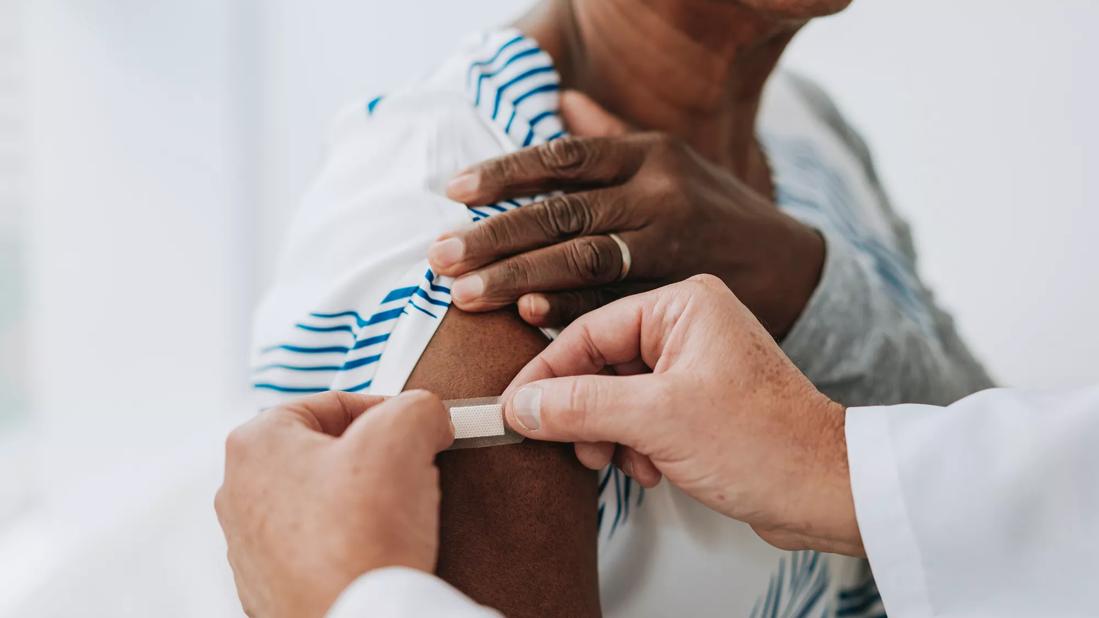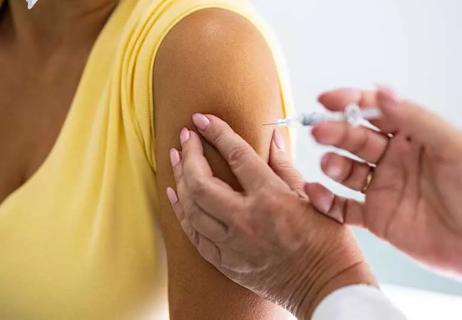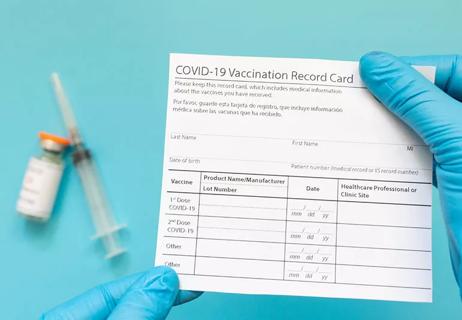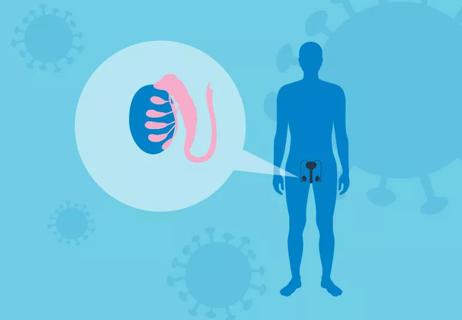Updated vaccinations are recommended to better protect against the evolving virus

Remember the rush to get a COVID-19 shot when the vaccines first arrived? Hundreds of millions of people rolled up their sleeves and got jabbed to protect themselves and others from the virus.
Advertisement
Cleveland Clinic is a non-profit academic medical center. Advertising on our site helps support our mission. We do not endorse non-Cleveland Clinic products or services. Policy
Today, of course, the pandemic is over, but COVID-19 continues to circulate and infect people around the world. It’s not gone.
That’s why being up to date on COVID-19 vaccinations remains a global health priority, says infectious disease specialist Kristin Englund, MD. Here’s what you need to be considered fully vaccinated for COVID-19.
COVID-19 continues to evolve with new variants and subvariants emerging. Dozens of different strains have been reported since 2020. Today, omicron and its offshoots are the predominant variants circulating.
As the virus goes through these changes, your body’s defense against these new attackers needs to be reinforced. “Mutations to the virus go well beyond what the initial vaccines covered,” says Dr. Englund.
That’s why the health authorities recommend getting an updated COVID-19 vaccine to better protect yourself against newer variants and serious illness. COVID-19 vaccination guidance from the CDC varies by a person’s age, vaccination record and health condition. Here’s a rundown:
Recommendations for this age group are:
Advertisement
For this age group, an additional dose of any updated COVID-19 vaccine is recommended at least four months following the first updated dose.
Those who are moderately or severely immunocompromised may benefit from additional doses of an updated COVID-19 vaccine. Talk to your healthcare provider about your specific timing needs.
Vaccines help your immune system recognize and destroy harmful invaders (such as COVID-19). They teach your body to protect itself by giving intel on potential threats. (Basically, it’s a biological cheat sheet.)
It takes about two weeks after getting a COVID-19 vaccination for your body to build up immunity against the virus, says Dr. Englund. After that, you’re considered “fully vaccinated” against COVID-19.
Data show the effectiveness of COVID-19 vaccines. A 2024 report shows that people who received an updated vaccine were 54% less likely to get COVID-19. (The findings focus on the four months from mid-September 2023 to January 2024.)
But that protective power naturally declines over time. Dr. Englund says COVID-19 vaccines generally hold firm against the virus for about a year. After that, the shielding effect loses some oomph.
New COVID-19 variants can also lessen the effectiveness of vaccines over time.
“As the virus mutates and changes, the vaccine loses some of its efficacy in addition to waning over time,” explains Dr. Englund. “That's why we recommend getting an updated vaccine.”
Getting COVID-19 also educates your immune system on the virus and offers some security against future infection. But like vaccines, that immunity lessens over time and doesn’t cover new variants.
Experts recommend getting an updated COVID-19 vaccine even if you have had the virus. (The suggested wait time is 90 days after infection.)
Research shows that people who don’t get vaccinated after recovering from COVID-19 are more likely to get reinfected than those who get an updated vaccine to boost their natural immunity.
More than 98% of the population in the United States has some protective immunity against COVID-19 through vaccination, prior infection or some combination of the two.
But data show that a much smaller percentage has received an updated COVID-19 vaccine.
Looking ahead, Dr. Englund envisions vaccination against COVID-19 following a similar pattern as what’s done for influenza (aka, the flu). In other words, an annual shot to guard against infection and serious illness.
There’s even work underway on a combined flu/COVID-19 vaccine.
Advertisement
“This all falls under the concept of public health,” says Dr. Englund. “Getting vaccinated is one way to lower your risk of spreading illness and to help protect the people closest to you.”
Advertisement

Sign up for our Health Essentials emails for expert guidance on nutrition, fitness, sleep, skin care and more.
Learn more about our editorial process.
Advertisement

Redness, swelling, itching and rash can happen when your body’s immune system reacts to the vaccine injection

Irregularities in cycle length and flow aren’t a cause for concern

Before you panic, here are the options to consider

Just one more myth to add to the misinformation pile

Our expert explains why swollen lymph nodes happen

Chilblain-like skin lesions and rashes are mild (and rare) complications of many viral infections, not just COVID-19

Follow these tips, like hand washing and self-care, to keep illness at bay as you celebrate the season

Most can return to work or school when they’re symptom-free for 24 hours

Even small moments of time outdoors can help reduce stress, boost mood and restore a sense of calm

A correct prescription helps your eyes see clearly — but as natural changes occur, you may need stronger or different eyeglasses

Both are medical emergencies, but they are very distinct events with different causes